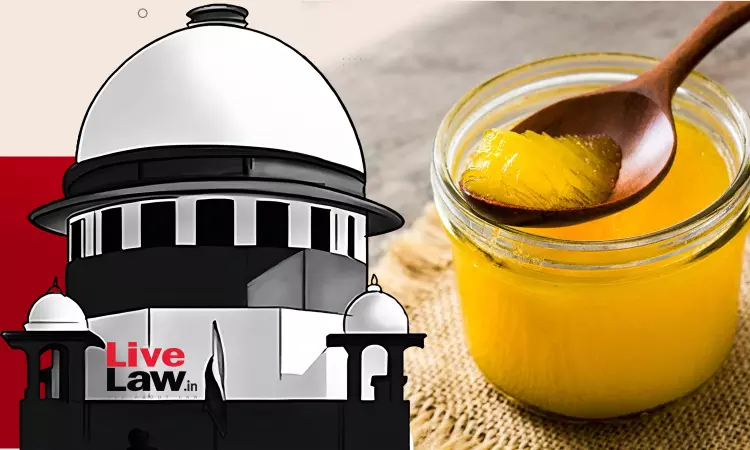'Ghee' A 'Product Of Livestock' : Supreme Court Dismisses Challenge To 1994 Andhra Pradesh Notification
Debby Jain
6 March 2024 9:23 PM IST

Next Story
6 March 2024 9:23 PM IST
In a recent ruling, the Supreme Court held “ghee” to be a “product of livestock” for the purposes of regulation of its purchase and sale in all notified market areas of Andhra Pradesh (AP). “The argument that “ghee” is not a product of livestock is baseless, and bereft of any logic…Livestock has been defined under Section 2(v) of the Andhra Pradesh (Agricultural Produce...
